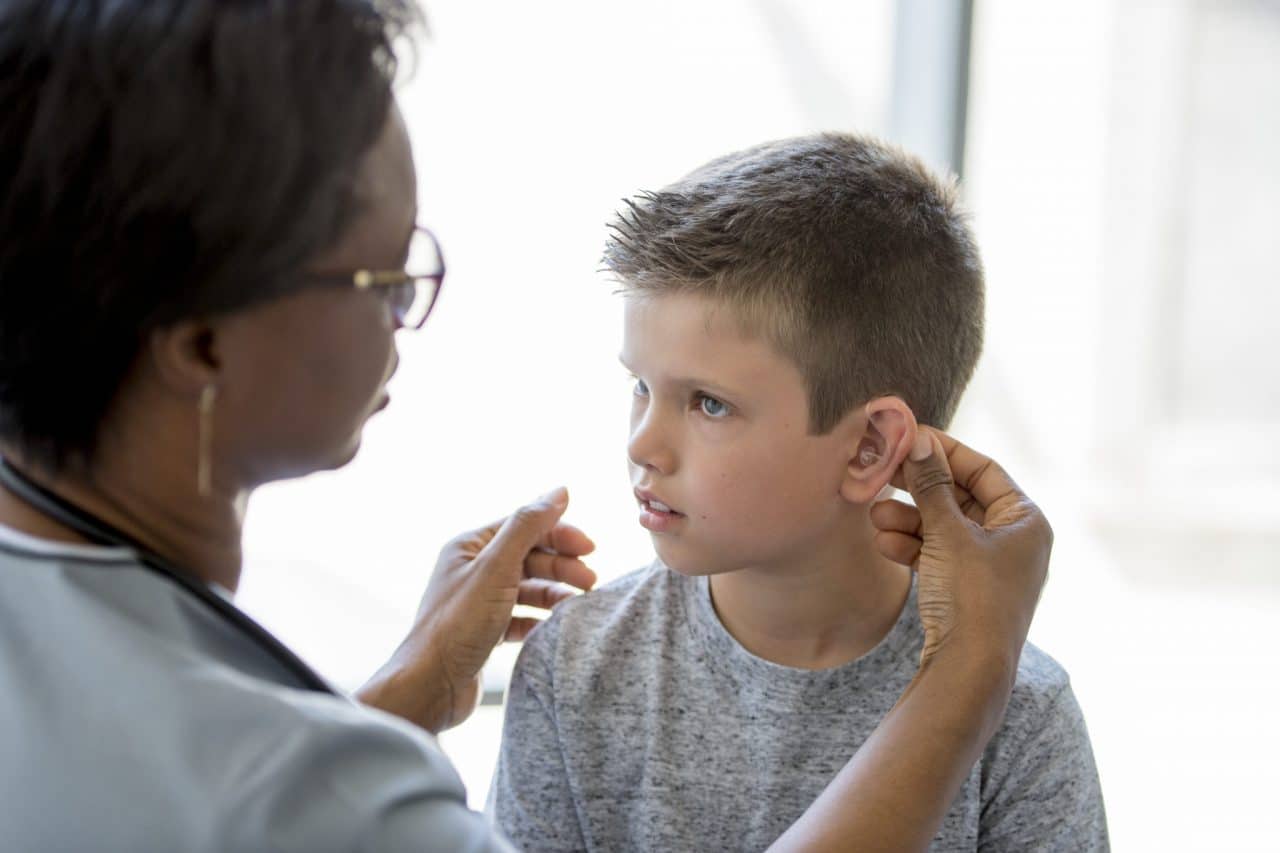Research shows that, left untreated, hearing loss can impact a child’s language development and school performance. Fortunately, studies have also shown that hearing aids and other treatment options can minimize this impact and help children learn better.
What the Studies Show

The University of Iowa conducted a study published in 2015 showing that children with hearing loss develop speech and language skills better when they use hearing aids.
The researchers recruited 180 preschool-aged children with hearing loss using records of newborn screenings and referrals from clinical service providers from six different states. All the children who wore hearing aids showed better speech and language development compared to the children who went untreated. In addition, the longer a child had worn hearing aids, the better their development.
“The cautionary note from our research is that any degree of hearing loss, even mild, can place children at risk. Our study shows that the risk can be minimized with early and aggressive intervention,” explained Bruce Tomblin, professor in the University of Iowa’s Department of Communication Sciences and Disorders.
The Role Hearing Plays in Language Development
The sense of hearing does more than simply allow us to listen to what other people are saying. It impacts a child’s development of vocabulary, sentence structure and social skills. There are four major ways hearing loss can affect children’s development, according to the American Speech-Language-Hearing Association:
- Hearing loss causes delays in speech and language skills
- Language deficit results in lower academic achievement
- Communication difficulties cause social isolation and low confidence
- Career choice can be negatively impacted
It is especially difficult for children with hearing loss to understand words with abstract meanings (like “before”/“after”) and words with multiple meanings. It is also difficult for them to hear sounds like “s,” “sh,” “f,” “t,” “k” and “ed,” which can affect the words they include in their vocabulary and their sentence construction.
The gap between children with normal hearing and children with hearing loss may widen as they age, but with proper intervention, children with hearing loss can catch up.
What to Do if You Suspect Hearing Loss
The first three years of a child’s life is a critical period for acquiring speech and language skills. If you notice that your child is not responding to loud sounds or their name, schedule an appointment with a pediatric audiologist.
For more information or to schedule an appointment, call the experts at ENT of Georgia.